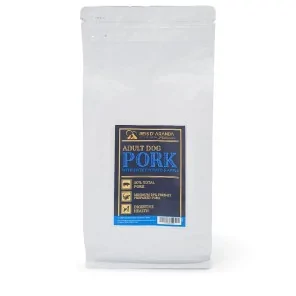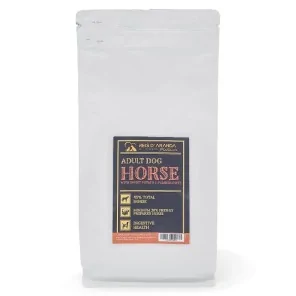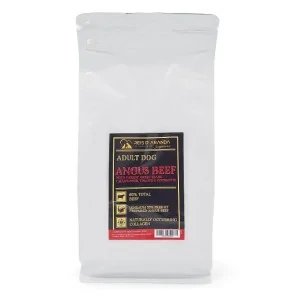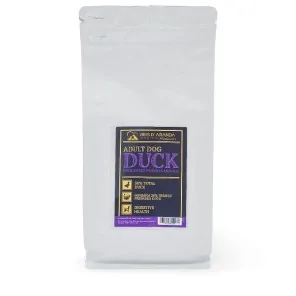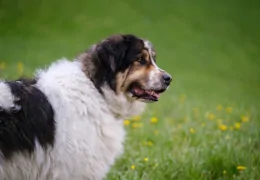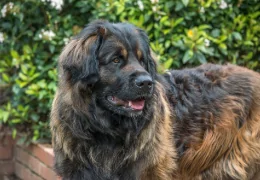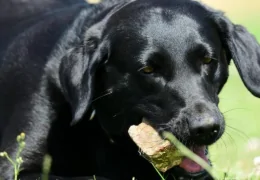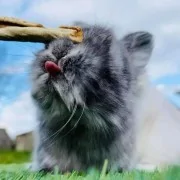The Tornjak originated from genetically homogeneous, almost extinct, indigenous shepherd dogs. These dogs have...
FOOD FOR WORKING DOGS
WHAT IS A WORKING DOG?
The first thing we have to differentiate is the term "working breed" and "working dog".
The FCI (Fédération Cynologique Internationale) officially recognizes a total of 341 breeds (this number does not include native breeds in the process of recognition or recovery by their associated countries) while the AKC (American Kennel Club) recognizes far fewer: 193.All dog breeds were selected or created with a function: to help man in various daily activities (including companionship, although this is not a "job"), such as hunting, herding, guarding/defending, retrieving, detecting illness or emotional crisis, being the eyes of the blind and the ears of the deaf...
Most dog breeds are working breeds, although their original functions have been relegated to the background: Border Collies that do not herd, Yorkshire Terriers that do not hunt rats, Poodles that do not retrieve hunted ducks in the water and Dobermanns that do not defend their owners.
On the other hand, we have the term "working dog", a working dog may or may not be purebred as long as it fulfills a utility function of the above mentioned, mainly because it has a genetic predisposition for it or its instincts are more primary (for example, in the case of the hunting instinct).
HOW SHOULD WE FEED OUR SPORTING DOG?
When our dog is dedicated body and soul to a specific work or sport (dog sports have more and more followers every year, as in the case of agility, canicross, obedience or mondioring) its owner (also known as "guide") must be clear that training, exercise and proper nutrition are essential to ensure optimal performance of the working dog / athlete.
To respond to these nutritional needs, we must seek for our dog a source of high quality proteins and fats (which will help the maintenance and development of muscle as well as offer our dog a good source of energy), supported by carbohydrates, which should not be lacking.
Varied, balanced, digestible and nutritious, this is how the diet of a working dog should be; if we opt for cheap products, full of by-products (animal or vegetable) and not very careful formulas, we risk that our dog will have a poor performance and, in the worst case, may suffer injuries of various kinds: poor digestion, gas (which, combined with exercise, can trigger stomach torsion), excess fecal matter, allergies, cardiac or hepatic-renal problems, underweight....
THE CORRECT FEEDING OF THE WORKING DOG: SOMETHING TO WORK ON SINCE CHILDHOOD
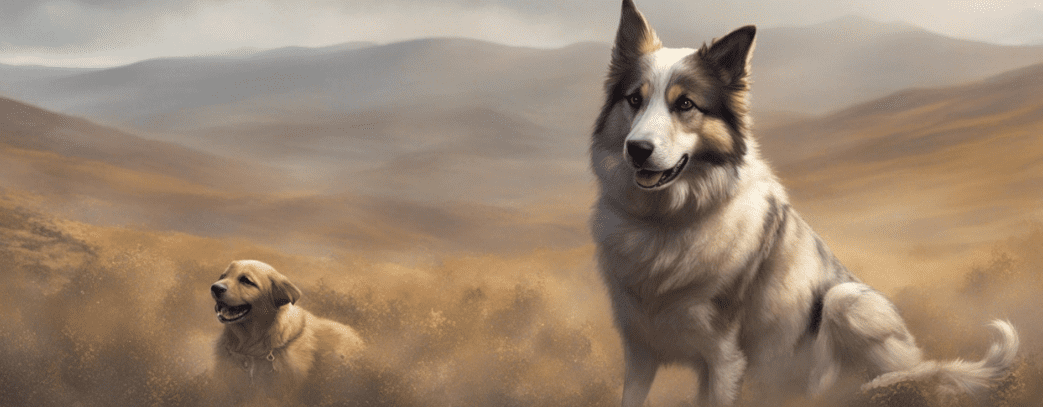
But, good nutrition must begin in our dog's childhood, not when we decide to practice some kind of work or sport with him; as it happens with children, if our puppy's nutrition is optimal, rich in nutrients and varied, his bones, muscles and joints will be strong, which will provide a greater physical resistance and a much more satisfactory result. Likewise, if our dog suffers any unexpected mishap during work, as he has a strong immune system and a great state of health, his recovery will be much faster.
We should not limit ourselves to feed him with anything, but to look for the diet that better adapts to his needs and the sport or function he practices, in the right measure and to bet for ingredients of the best quality, accepting at the same time that this will not be cheap, since nobody gives anything for free.
Veal or horse are great sources of easily digestible proteins, the latter being a great source of iron.
QUALITY FEED FOR WORKING DOGS
As regards qualityfeed linked to these two types of animal protein, we have the Reis d'Aranda Angus Beef Adult Dog Food, a high quality feed without cereals (which we will add as owners in the way that best suits our dog) that has 65% Angus beef, undoubtedly one of the best meats in the world due to its characteristics, rich in proteins of high biological value, iron, phosphorus, vitamin B and unsaturated fatty acids of the Omega 6 family .
On the other hand, we have the Reis d'ArandaNatural Horse Feed for Adult Dogs, with 45% of high quality horse meat, which makes it a great source of protein, vitamins of the complex: B1-B2-B3-B6 and B12, and essential minerals such as zinc, iron, phosphorus and magnesium.
If at any time we have doubts about what food is best for our working or sporting dog, we will always consult professionals: veterinarians specialized in nutrition and professionals working with dogs, always in combination.
MODERATE PHYSICAL ACTIVITY AND CLIMBING IS FUNDAMENTAL.
Finally, we must not forget that physical and mental activity is very important in the daily life of dogs. When a dog works in one way or another, it is much happier than a bored and frustrated dog that does not see its genetic or individual needs met, which can quickly lead to unwanted behaviors: chasing cars, bicycles or scooters down the street, aggression, self-mutilation (most common are paw sucking/biting or tail chasing) or destructive behaviors in the home.
There are many wonderful breeds and dogs, but when we acquire one (in whatever form) we have to know very well the needs of that particular breed, and not limit ourselves to its popularity in society, how beautiful it looks or how much we feel sorry for it, because we can find ourselves in a major problem that can last for the next ten or fifteen years (which happens a lot with border collie, Malinois or Siberian husky). If on the other hand, it is a dog whose instincts and needs have emerged over time (as in the case of puppies or adults acquired in a shelter or kennel), our duty as responsible owners is to adapt and find a way to satisfy them physically and mentally.
An active dog whose genetic and individual nature is respected is a much happier and complete dog.
Leave a comment
Log in to post comments


